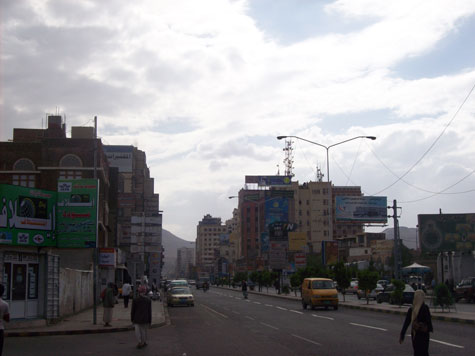A while back I was contacted by a Bonzai reader who has spent the last few years traveling through the Middle East and Northern Africa. Chantal offered to write a guest post, a sort of guide for surviving as a vegan in that region of the world. I loved the idea! And though the subject matter may be experientially limited (we don’t all get to go adventuring in Arabia!), I figure if nothing else we’ll learn some interesting new dishes to sample in out local ME/NA restaurants. I really loved reading this article, and imaging myself out there galavanting around the desert. Some day I’ll make it a reality, and maybe you will too. In the meantime, I hope you enjoy this piece as much as I did!
~~~
For the last three years, hubby and I have been weaving our way through the Middle East and North Africa (MENA) and the most common response when we confess our veganism is “Kayf? (How?)”
Well, friends and fellow wanderlust travelers, here are some tips for fellow vegans beckoning the call to explore Arabia and the Maghrib (North Africa). We’ve met vegetarians and post-vegans in our travels who thought it impossible to stay plant-based during extended stays in the region but whether you’re visiting for a day or a year, we hope these tips will help you maintain your diet in the not-always-vegan friendly MENA.
1. Know the 3 F’s: Falafel, Fosolia, and Foul. Most people are familiar with falafel but how many of you know its distant cousins, foul and fosolia. Foul (pronounced: fool) is a dish made with fava beans. It can be served mashed (foul modammas) in a tomato-based sauce or served whole, sautéed with onions, garlic, tomatoes, and peppers. Sometimes it’s served with eggs but you can easily request it without. Fosolia is a white bean dish served in tomato sauce. Each of the 3 F’s can be enjoyed on any hot, steaming variety of Arabian bread that it’s typically served with.
Research other region-specific specialties like tabouleh (parsley and bulgur wheat salad), mujaddara (sautéed lentils and rice with fried onions), hummus (chickpea dip), baba ghanoush/mutabal) (roasted eggplant dip), or kosh’ari (sautéed brown lentils, rice/pasta, tomato sauce, and fried onions).

2. Lentils (‘Addis) are your friends! Lentil soups and stews are quite popular throughout the Mediterranean and they’ve always been vegan in our experience. However, to be sure, inquire about any meat flavoring.
3. Local Produce Rocks! While the local fruit varieties can be admittedly unattractive, they taste way better than the glossy imports any day! Most produce sellers will happily tell you which produce is local (maHalli) or not. In addition to produce stands to buy fruit, you might also find fruit “cafes” that serve freshly blended fruit juices and desserts.
As for veggies, BEWARE! Some “developing” countries have “development” agreements that pressure local farmers to spray their produce with pesticides and “certified organic” produce hasn’t migrated this far east just yet! Ask around for produce from small, family farms or trust your judgment. If your cucumbers or beets have a medicine-like aftertaste or your spinach doesn’t have a few holes or a friendly bug chomping on it, you probably shouldn’t eat it!

4. Dates and Nuts to the Rescue! When all else fails, find your way to a traditional market (souq) and stock up! Dates and nuts create a nourishing, balanced meal when you’re running out of options. If you plan on trekking out to any desert regions, these are a must! The desert offers even fewer dining options for the herbivore and omnivore alike! Also, if you have a sweet tooth, this combo is your safest dessert. Most desserts in these parts are made with butter, cream, and tons of sugar, unless they’re fried (similar to donuts).
5. Stay Close to Capital Cities. While capital cities are admittedly more cosmopolitan than the preserved rural life, they do offer more variety than found elsewhere. We’ve found soy milk in Sana’a (Yemen), veggie burgers in Muscat (Oman), tofu in Mecca (Saudia Arabia) and vegan cookies in Algiers (Algeria). Outside of the capital cities, these imports are largely unknown and absent. Also in the capitals, you’ll likely find Indian restaurants, one of the most popular non-Arabian cuisines in the region, with Turkish restaurants as a close runner-up.

6. Guard your Couscous. Even after you’ve clearly explained that you don’t eat meat, most hosts will not see the harm in stewing your vegetable tangine (stew) with meat. If you’re fortunate, you’ll get a handful of chickpeas in your stew but be sure to clearly express that you prefer the veggies/beans be cooked separately from meat. Also, inquire about your couscous request. Some couscous dishes are served with a thick yogurt cream or cooked with butter.
7. Be polite and respectful. Arabs are notorious for their hospitality. They will feed you until you need to be rolled to your lodging! Unfortunately, for many, serving you meat is part and parcel of their hospitality! We’ve literally had guests who felt bad for not serving us meat even though we licked every vegan dish clean! So, if you’re going to decline, be polite, smile, and say “Shukran! (Thank you!)” Many people don’t see animal cruelty and eating meat as the same issue. You will likely find a sympathetic ear if your reasons for being vegan (be prepared because you will be asked) revolve around you’re disdain towards the barbaric treatment of animals in most modern slaughter houses. Arab culture does have a respect for the animals that they consume but see pre-slaughter treatment and slaughtering animals as two different issues.
Even though the idea of traveling throughout MENA is not too popular these days, we hope these tips will help you along your journey to discovering a rich cultural heritage and amazingly warm and hospitable people! Ma’a salaama! (With Peace!)

Catch up with Chantal and her family’s awesome adventures at Raggamuslims!





Pingback: Herbivores of Arabia – Vegan Tips for Travel in the Middle East and North Africa | Raggamuslims